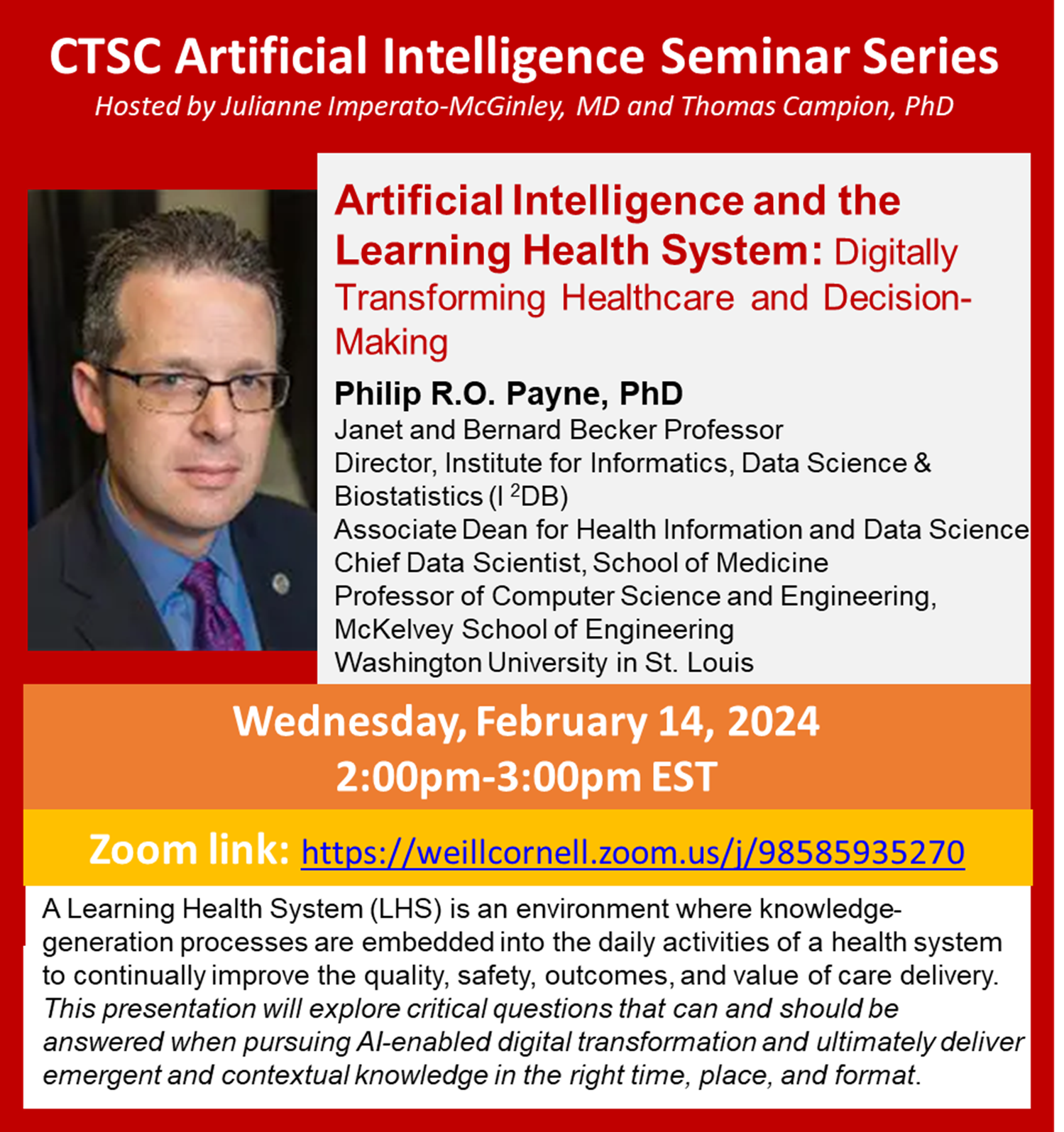
Link to attend: https://weillcornell.zoom.us/j/98585935270
Summary: A Learning Health System (LHS) can be defined as an environment in which knowledge-generation processes are embedded into the daily activities of a health system to continually improve the quality, safety, outcomes, and value of care delivery. While still primarily an aspirational goal, the promise of the LHS is a future in which every patient encounter is an opportunity to learn and improve that patient’s care and the care their family and broader community receive. The foundations for building the LHS include access to multi-scale data derived from the Electronic Health Record (EHR) and complementary sources and the use of contemporary Artificial Intelligence (AI) methods to derive actionable insights from those data. When combined, these platforms and capabilities serve as the foundations for the digital transformation of healthcare and the decision-making processes that impact patients and populations. This presentation will explore critical questions that can and should be answered when pursuing AI-enabled digital transformation and ultimately deliver emergent and contextual knowledge in the right time, place, and format.
Learning Objectives:
1) Become familiar with the key definitions, frameworks, and methods that serve as the foundation for the digital transformation of healthcare and health-related decision-making at the point of care and beyond.
2) Recognize the benefits and limitations of modern AI techniques applied to multi-scale biomedical data and how such issues impact the actionability of resulting data-driven insights.
3) Articulate the cultural, technical, and environmental changes necessary to evolve toward the visions of a continuously learning healthcare system.
About the speaker: Dr. Payne is the Janet and Bernard Becker Professor and founding Director of the Institute for Informatics, Data Science, and Biostatistics (I2DB) at the Washington University School of Medicine. He is also the Associate Dean for Health Information and Data Science and Chief Data Scientist for Washington University Medicine. In addition, he serves as the Chair of Washington University’s Digital Transformation initiative, including the recently established university-wide Digital Intelligence and Innovation Accelerator (DI2). His leadership in the informatics and data science community has been recognized through his appointment to numerous national steering, scientific, editorial, and advisory committees, including efforts associated with the National Academy of Medicine (NAM), the American Medical Informatics Association (AMIA), AcademyHealth, and numerous institutes and centers at the National Institutes of Health (NIH). He is the author of over 275 publications focusing on the intersection of biomedical informatics, data science, and the clinical and translational research and precision health domains. Dr. Payne’s research group currently focuses on efforts in the fields of biomedical data science, applied clinical informatics, and clinical research informatics, including: 1) cognitive computing and machine learning approaches to computational phenotyping; 2) the design and delivery of advanced clinical decision support system that can enable shared decision-making; 3) human factors and workflow issues surrounding the use of technology at the point-of-care; and 4) open-science platforms that enable collaborative approaches to biomedical and healthcare data analytics.

